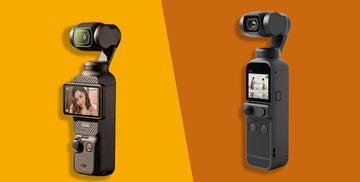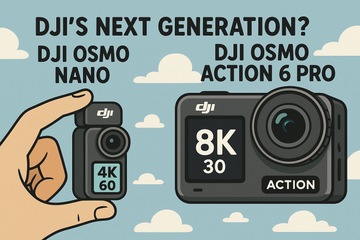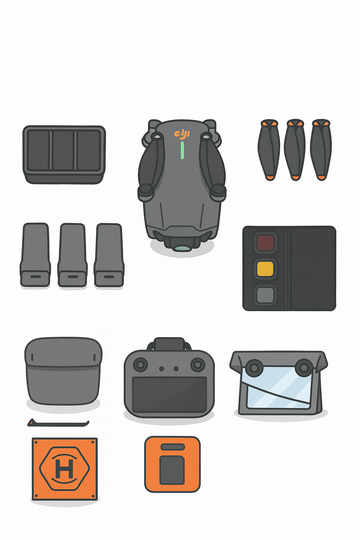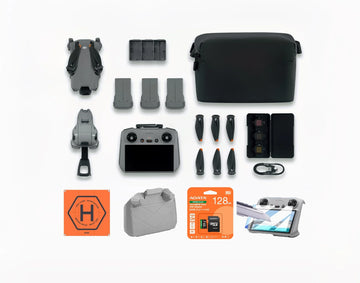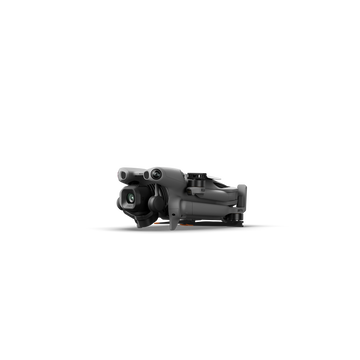If you’re deciding whether to upgrade or choosing between the two, here’s a side-by-side look at how DJI’s latest handheld gimbal camera stacks up against its predecessor.
|
Feature |
Pocket 3 |
Pocket 2 |
|
Image Sensor |
1″ CMOS (20 MP stills) |
1/1.7″ CMOS (64 MP stills via Quad-Bayer) |
|
Lens & Aperture |
20 mm equiv., f/1.7 |
20 mm equiv., f/1.8 |
|
Video |
4K/60 fps @ 100 Mbps; FHD/120 fps |
4K/60 fps @ 100 Mbps; FHD/120 fps |
|
Stabilization |
RockSteady 3.0 + HorizonSteady |
RockSteady |
|
Low-Light Performance |
Improved dynamic range & noise reduction |
Good – solid for daylit scenes |
|
Intelligent Modes |
ActiveTrack 5.0, Story Mode templates, Timelapse 4.0 |
ActiveTrack, Story Mode, Timelapse |
|
Audio |
Built-in mic + Creator Combo wireless mic |
Built-in mic + Creator Combo wireless mic |
|
Battery Life |
Up to 160 minutes |
Up to 140 minutes |
|
Size & Weight |
128 × 46 × 40 mm • 120 g |
124 × 38 × 30 mm • 117 g |
|
Fold-Down Design |
Fully collapsible for true pocket carry |
Folds at two axes – very pocketable |
|
Key Advantage |
Superior low-light, advanced stabilization, longer runtime |
Higher megapixel stills, slightly smaller footprint |
Key Takeaways
- Sensor & Image Quality: Pocket 3’s larger 1″ sensor delivers better low-light performance and wider dynamic range, even though the Pocket 2 produces higher-MP stills through pixel-binning.
- Stabilization Improvements: HorizonSteady in Pocket 3 keeps your horizon level no matter how you tilt—ideal for action shots.
- Battery & Portability: You get an extra 20 minutes of shooting time, with only a slight increase in size and weight.
- Smart Features: Upgraded tracking (ActiveTrack 5.0) and new Story Mode templates make creating polished content faster.
Whether you’re stepping up to the Pocket 3 for its low-light prowess or sticking with the Pocket 2 for its megapixel-rich photos, both deliver pro-level gimbal stabilization in a palm-sized package. Visit SpeedyDrone Canada to try them side by side and find the best fit for your creative workflow!


